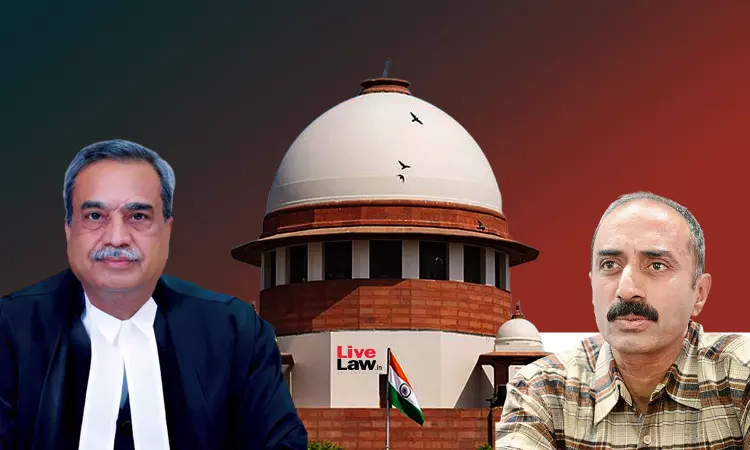New Delhi, April 29, 2025 – The Supreme Court of India has denied bail and suspension of the life sentence for former IPS officer Sanjiv Bhatt in a high-profile 1990 custodial death case. Justices Vikram Nath and Sandeep Mehta dismissed Bhatt’s plea, citing the severity of the custodial violence charges. However, the court mandated an expedited hearing for Bhatt’s appeal against his conviction, signaling a focus on timely justice in this long-standing case.

Background of the Sanjiv Bhatt Custodial Death Case
The case stems from an incident on October 30, 1990, when Bhatt, then Additional Superintendent of Police in Jamnagar, Gujarat, detained around 150 individuals during communal riots in Jamjodhpur. The unrest followed a ‘bandh’ protesting the interruption of BJP leader L.K. Advani’s ‘Rath Yatra’ for the Ram temple in Ayodhya. Among those detained was Prabhudas Vaishnani, who died of renal failure ten days after his release, following nine days in custody. Vaishnani’s brother alleged Bhatt and six other police officers tortured him, leading to his death.
In 2019, a Jamnagar sessions court convicted Bhatt and co-accused Pravinsinh Zala of murder (Section 302), voluntarily causing hurt (Section 323), and criminal intimidation (Section 506) under the Indian Penal Code, sentencing them to life imprisonment. Five others were acquitted of murder but convicted on lesser charges. The Gujarat High Court upheld Bhatt’s conviction in January 2024, prompting his appeal to the Supreme Court.
Supreme Court’s Ruling on Sanjiv Bhatt’s Bail
Bhatt’s legal team, led by Senior Advocate Kapil Sibal, argued that Vaishnani’s death was due to pre-existing medical conditions, not custodial torture, and pointed to inconsistencies in the prosecution’s evidence. The Supreme Court, however, found no grounds to grant bail, stating, “We are not inclined to enlarge the appellant on bail.” The court clarified that its remarks were specific to the bail plea and would not influence the appeal’s outcome.
The court’s directive to expedite the appeal hearing underscores its commitment to resolving this case, which has drawn significant attention due to Bhatt’s controversial career and allegations of political motivations.
Who is Sanjiv Bhatt?
Sanjiv Bhatt, a former IPS officer, was dismissed from service in 2015 for unauthorized absence. He has been in Rajkot Central Jail since 2018, serving a life sentence for the 1990 custodial death case and a 20-year sentence for a 1996 case involving allegations of planting drugs to frame a Rajasthan lawyer. Bhatt was acquitted in a separate 1997 custodial torture case in December 2024. His 2011 affidavit alleging complicity of then-Gujarat Chief Minister Narendra Modi in the 2002 Gujarat riots has fuelled debates about his legal battles.
Public and Political Reactions
The Supreme Court’s decision has sparked mixed responses. Advocates for police accountability view the ruling as a step toward justice for custodial violence victims. Conversely, Bhatt’s supporters argue the case is politically driven, citing his outspoken criticism of powerful figures. The case continues to highlight broader issues of custodial deaths and judicial oversight in India.
What’s Next for Sanjiv Bhatt?
With the bail plea rejected, Bhatt’s legal team will now focus on the expedited appeal hearing. The outcome could set a precedent for addressing custodial violence and police accountability in India’s judicial system.
